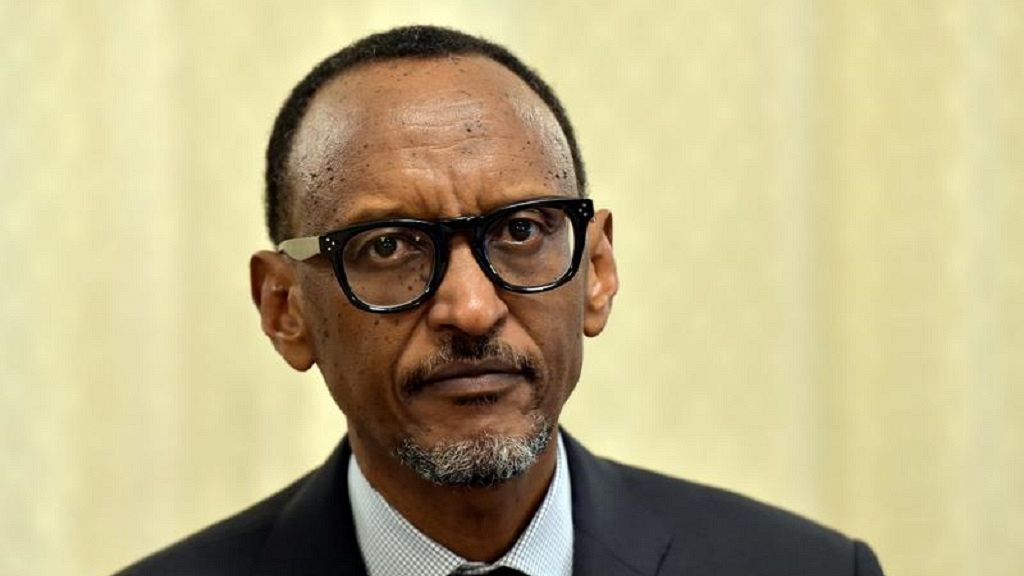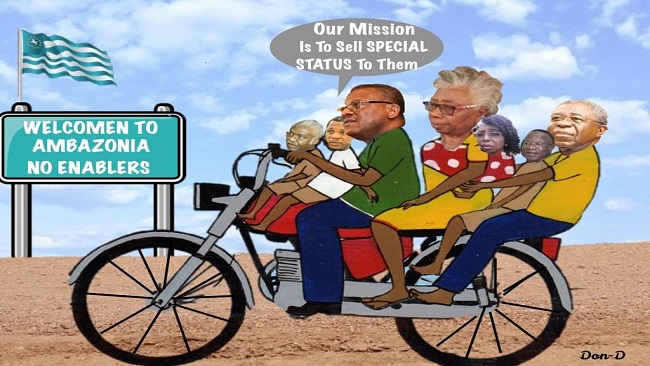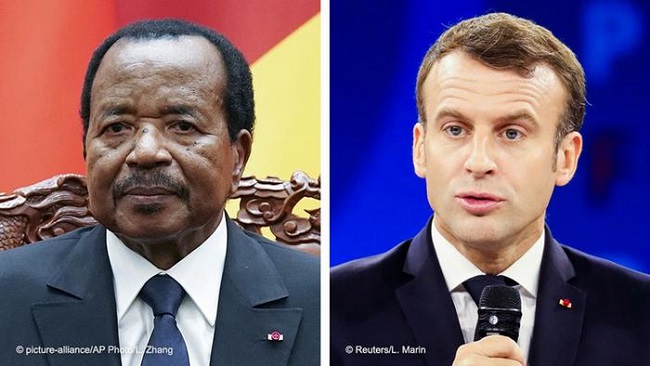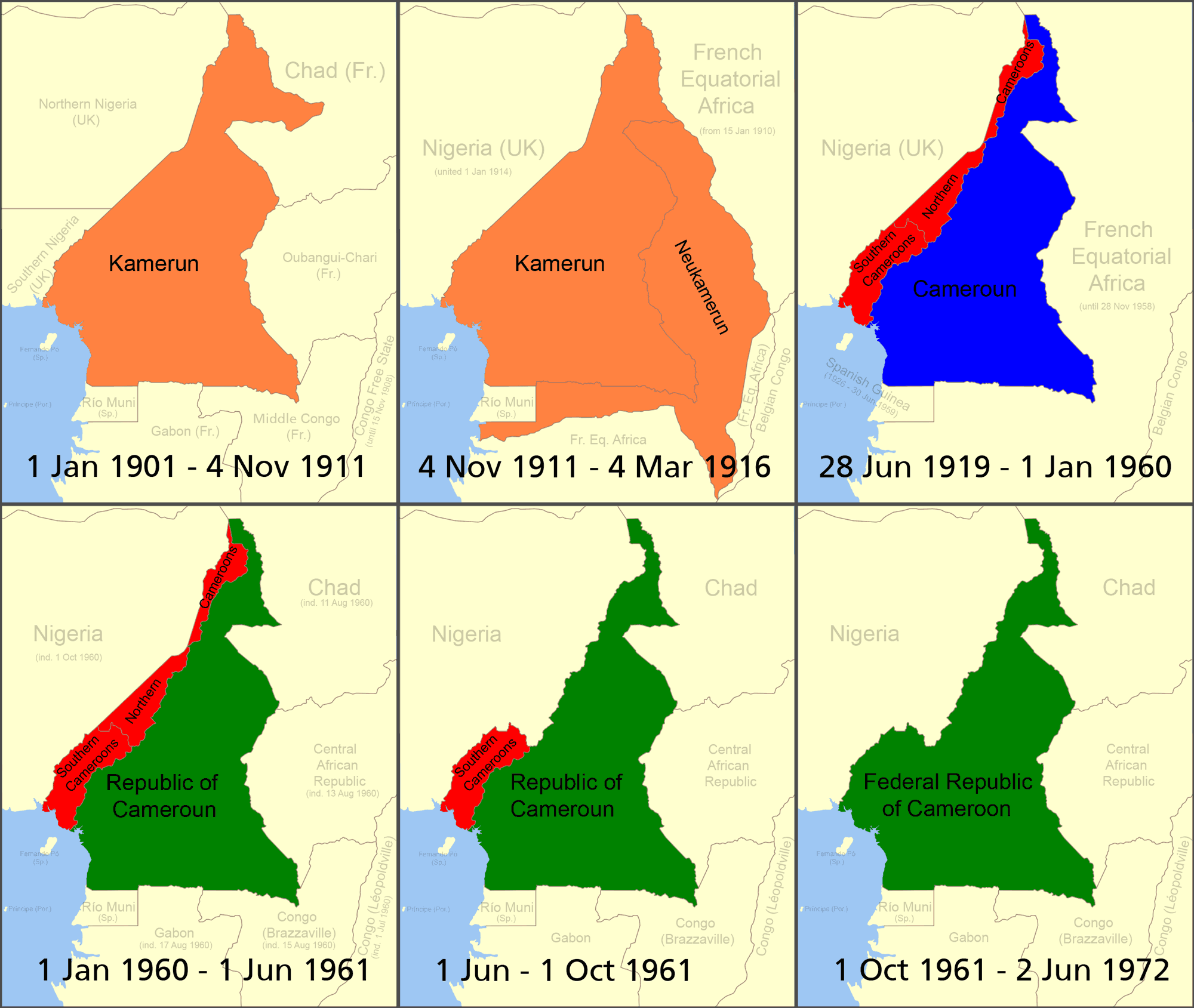19, December 2019
Things fall apart as Biya struggles to control Southern Cameroons 0
The clashes that erupted between Cameroon army soldiers and Ambazonia Restoration Forces has for the fourth year running not subsided as the French Cameroun head of state Paul Biya, worked to contain his worst internal crisis in his 37 years in power by placating the people of Southern Cameroons with the so-called Special Status.
Just a month after Biya told the world in Paris, France that French Cameroun’s diabolic harsh ploy to assimilate Southern Cameroonians have failed, his soldiers have continued to battle in the streets of Southern Cameroons with Ambazonian Restoration Forces who are making the territory ungovernable. Biya has been talking to the Southern Cameroonians in his regime and has painted the jailed leadership of the Ambazonia Interim Government as extremists and separatists.
But beneath that French Cameroun common ground with some pro Yaoundé CPDM Anglophone barons, a profound division remains between the French Cameroun surrogates such Prime Minister Dion Ngute and the Ambazonia Interim Government that presently has legitimate authority in Southern Cameroons.
Whereas Dr Dion Ngute and his cream of Anglophone CPDM leaders have embraced the special status solution that seems to offer Southern Cameroonians nothing new, the Ambazonia Interim Government is demanding the restoration of the independence of British Southern Cameroons. Mr. Biya and Dr Dion Ngute need the French government to realize their goal; the Ambazonia Interim Government regards the French government as a threat.
The fundamental disagreement over goals, layered with accumulated resentments, are, ultimately, the reason hundreds of Southern Cameroonians in the Republic of South Africa have urged the Ambazonia Vice President Dabney Yerima to endorse the creation of an Ambazonia National Army.
Both Yaoundé and the Ambazonia Interim Government now seemed alarmed by the fighting going on in Southern Cameroons which in some localities include Southern Cameroonians against Southern Cameroonians.
With international pressure mounting on the regime in Yaoundé and coming mainly from the United States, Mr. Biya and his inexperienced Beti Ewondo political elites appeared to be at a standoff — each afraid of the other, and each afraid of who is planning to use the Southern Cameroons crisis to replace Biya as head of state.
The nearly four years long conflict is entering an uncertain phase, as American pressure and Biya’s health situation is compelling the French government into forcing Yaoundé to the negotiating table. Peaceful negotiations would never result in the recognition of the Federal Republic of Ambazonia by Yaoundé and the French government, so the world is in for another prolong political crisis.
President Sisiku Ayuk Tabe and his Vice, Comrade Dabney Yerima may have no choice but to accept whatever the US and Europe brings to the table if the Ambazonia Interim Government wants to retain American support for the creation of a Southern Cameroons state.
By Asu Isong in London



 @JoeBiden
@JoeBiden




























19, December 2019
Southern Cameroons granted special status by its colonial masters 0
Lawmakers in French Cameroun on Wednesday adopted a draft law on decentralization granting special status to the country’s two English-speaking regions, where a deadly conflict between the army and separatists has been going on for more than two years, according to national radio.
The Cameroonian radio station explained that if the law is approved by the Senate and promulgated, the regions will be allowed to develop public policies in the areas of education and justice.
This special status was the main recommendation agreed upon by the participants at the Grand National Dialogue convened by President Paul Biya in early October to end this crisis, which has left more than 3,000 people dead.
At a time when many voices were being raised to criticise the limited legislative follow-up to this major dialogue, the National Assembly met in extraordinary session on Friday to finally examine this bill.
Most of Cameroon’s Anglophones live in these regions, who consider themselves disadvantaged compared to the country’s Francophone majority. The crisis began in November 2016, with mainly demands from teachers or lawyers, calling for more representativeness for Anglophones. Most of them called for a return to federalism, but a minority demanded independence and the proclamation of a new state, Ambazonia.
But in the face of Yaoundé‘s intransigence and the repression of peaceful demonstrations, the conflict has intensified. At the end of 2017, some of the separatists took up arms.
Since then, fighting has been raging between the army and these armed groups, taking the population in hand. Over the past two years, more than 700,000 people have had to flee their homes.
After more than two years of conflict, Yaoundé decided at the end of September, under international pressure, to organize this dialogue to resolve the crisis.
Will a special status resolve crisis?
The boycott of this meeting by the main pro-independence leaders did not prevent the participants from advocating decentralization through the creation of this “special status”. A proposal far removed from federalist aspirations, for the most moderate, and independenceist for armed groups, but which had raised hopes of a return to the price after two years of inaction.
However, these discussions have so far not been successful in bringing peace. Worse still, fighting and violence against civilians have intensified, several NGOs reported in early December.
Parliamentary elections are scheduled to be held in Cameroon in February 2020, but the two main opposition parties have announced their intention to boycott the elections, which they consider to be unrealistic due to the fighting in these two regions.
AFP with additional editing from Camcordnews